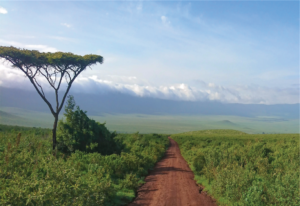
Photo: Ben Preater, Unsplash
Author: Anton Scheit
Coloniality as a concept originally derives from the late 1990s, a period when scholars increasingly identified long-lasting ‘left-overs’ of colonialism in former colonies. Initially, the concept had been applied in a Latin-American context but has then become a key concept examining sustained spheres of colonialism on a global scale (Maldonado-Torres 2007: 243). Coloniality takes ongoing colonial influences into account and links them to factors that were installed during colonialism. Thus, the concept facilitates differentiated examinations of and – by distinction – non-Eurocentric perspectives on asymmetric power structures which still impede a society’s emancipatory potential for autonomy (Escobar 2007: 180).
In the past decade, pastoralists in Tanzania’s north have experienced a new wave of violent evictions in the course of the government’s aim to expand wildlife tourism. The district of Loliondo lies around 300 km northwest of Arusha. As Weldemichel (2020) carried out and (inter)national newspapers repeatedly have addressed, several evictions from 2009 until 2017 took place in Loliondo leaving thousands of Maasai people homeless and dispossessed.
Read more: Coloniality of Conservation
